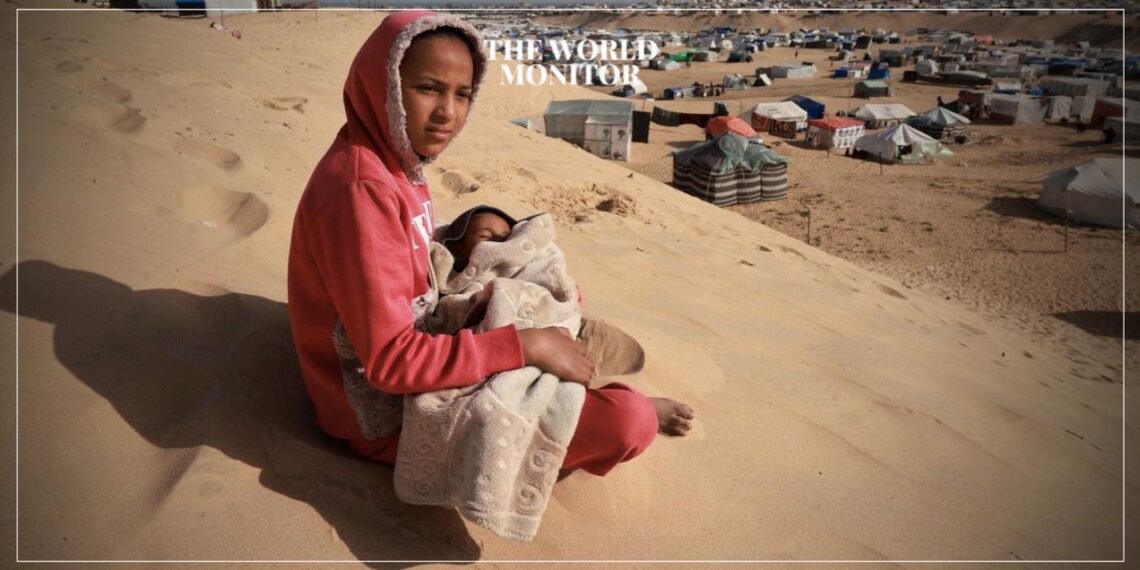Jordan’s King Abdullah II and German Chancellor Olaf Scholz warned on Sunday of the dangers posed by the Israeli assault on Rafah in the southern Gaza Strip, emphasizing that it would exacerbate the humanitarian crisis in the region. A statement from the Jordanian Royal Court mentioned that both parties discussed the “serious” developments in Gaza during their meeting in Aqaba, with King Abdullah highlighting the urgent need for the international community to act swiftly to achieve an immediate and lasting ceasefire in the area. The Jordanian monarch warned of the “tragic” humanitarian conditions in Gaza, stressing that they necessitate doubled efforts to prevent further deterioration. He also emphasized the importance of “intensifying efforts to protect civilians and ensure the adequate and sustainable provision of humanitarian aid to the region, utilizing all possible means,” according to the Jordanian statement.
King Abdullah also expressed concern about the potential grave consequences of ceasing support for the United Nations Relief and Works Agency for Palestine Refugees in the Near East (UNRWA), on Gaza, the West Bank, and Jordan. He reiterated Jordan’s rejection of any forced displacement attempts of Palestinians in the West Bank and Gaza, and attempts to segregate them. The statement also touched upon the role of the European Union and its efforts in achieving peace, with King Abdullah stressing the “need for serious and effective work to find a political horizon for achieving just and comprehensive peace based on the two-state solution.”
For his part, Chancellor Scholz strongly urged a ceasefire, stating in Aqaba, Jordan, on Sunday: “It is absolutely clear that we now have to do everything in our power to prevent the situation from worsening further.” Scholz also warned against an Israeli ground attack in southern Gaza, noting, “I believe that a large number of casualties in such an attack would make any peaceful progress very difficult. Many in Israel also understand this.” He added that “Israel has the right to defend itself against the attack initiated by Hamas,” but this should not lead to a “direct threat to the many who have fled to the city of Rafah in Gaza due to military actions.”
Scholz further mentioned, “That’s why I made it very clear, as did the American president, that we need to be very, very cautious in order to avoid a large number of casualties.” Commenting on the planned resumption of indirect negotiations between the conflict parties to reach a temporary truce, Scholz said: “For me, it is clear that the issue now is also about materializing the opportunity that appears in the current talks to reach a longer-lasting ceasefire.”
Estimates suggest that about 1.5 million Palestinians in Rafah are seeking shelter in cramped conditions and under miserable circumstances to protect themselves from the fighting in other areas of the besieged coastal strip. Relief organizations are warning of more civilian casualties. The German Chancellor emphasized the need for a significantly greater volume of humanitarian aid to be delivered to Gaza via land routes, stating on the “X” platform after meeting with the Jordanian monarch, that Berlin supports Jordan in the airlift for Gaza. Scholz added that the issue of delivering aid to Gaza would be a topic of discussion during his talks with Israeli Prime Minister Netanyahu during his visit to Israel.






